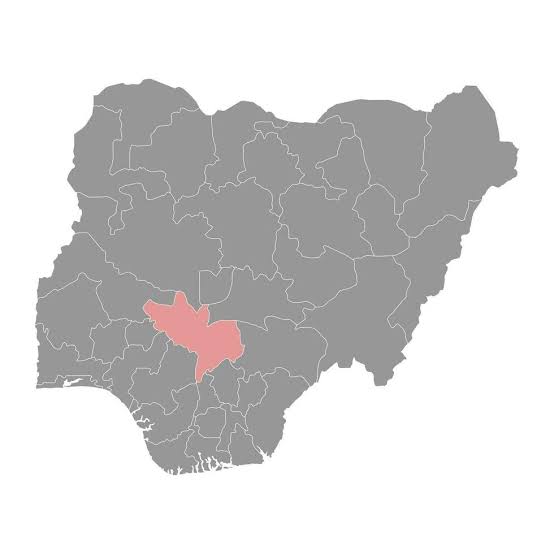
Adedayo Victor
@adedayo_viktor
A NO-NONSENSE HISTORIAN || HARDFACTS-WRITER || IMPERIALIST || OYO EMPIRE CITIZEN ||
The most prestigious crown in Yoruba land is Ade Shango, which can only be worn by the Alaafin of the Oyo Empire. We don’t have Ada and Eben in Oyo, as the "Ifecentric terrorists" imply. Instead, we identify our royalty with symbols like Ade, Irukere, Ileke, and Opa-Ase.
The Yoruba language consists of various languages, with 65% from Oyo, 25% from Edo/Benin, 15% from Arabic, and 5% from Hausa making up its vocabulary. For instance, words like Eko, Oba, Omo, and Okun come from Edo/Benin, while Adura, Asira, Faari, and Fitila have Arabic roots.

South East Nigeria is home to various tribes, and it is not Ibo-land. The Ibo's are actually a minority in South East region; many areas were established by the Benin and Igala people. The Ibo's are not indigenous to Nigeria; they were freed slaves from Equatorial Guinea.

The name "Yoruba" or "Yariba" was a label assigned to the "Oyo people" by Hausa traders. The old Oyo Katunga is different from today's Oyo; it was located near Jebba, close to the current Niger State. The Yoruba's at that time were made up of the Oyo, Ibaraba, and Nupe tribes.

The Great Benin Empire that founded and dominated Lagos, Ijebu, Ondo, Ekiti, along with most of South East and South South Nigeria. "Oba ghato kpere ise."

As someone from Oyo, I can honestly say that the Oba of Benin is the most respected Emperor in the world. But in Yoruba-land, our culture has been greatly affected by corruption and greed. That's why a politician can place a Native Doctor above the Alaafin of Yoruba-land.

The Great Benin Empire War Helmet, used by the fearless War Lords of Benin.

The term "Obi" comes from the Edo/Benin language, not Igbo. it should be spelled "Ovbi." This word is of Benin origin, not Igbo. Moreover, "Ovbi" means "Child" in the Edo Benin language. Kings such as Obi of Onitsha and Obi of Agbor are all children of the Oba of Benin.


This was the medal presented by Queen Victoria of England to her Terrorist Army for their successful invasion of the Benin Empire and the theft of Benin artifacts in 1897. The British need to pay reparations and give back all the stolen Benin artifacts to the Oba of Benin.


The art represents a story about the meeting of the Benin people and Japanese, showing that the sky is the limit for your achievements.
The Ibo language has been heavily shaped by the Edo/Benin language. A lot of the words that Ibo speakers use today actually come from Benin. For instance, in Edo/Benin, a fowl is referred to as "Okhukho," while in Ibo, it’s called "Okuko." Benin people influenced the Ibo's.

The Royal Throne belonging to the Oba of Benin, originating from the illustrious Benin Empire during the 18th to early 19th century, is crafted from robust, dark wood, selected for its resilience and spiritual significance.

HardFacts; The Owo kingdom, also called Oghor by the Edo/Benin people, served as a vassal state of the Benin Empire. Owo integrated many Benin customs and participated in military campaigns for Benin. The people of Owo are not Yoruba, they are in fact descendants of the Benin.

The village of Ile-Ife in Osun State is a British creation. The Uhe associated with Benin is situated in Omala, Kogi State. Finally, Oduduwa is a man from Benin.

The Artistic Heart of Africa: Benin located in today's Nigeria.


We, the Yoruba's, are immigrants in Lagos, while the Benin people are the original founders of the city, and that fact isn't going anywhere. A man from Ekiti or Ondo can't just claim Lagos for himself just because he's Yoruba; the true owners are the Benin people.

The Native Doctor in Ile-Ife is nothing but a culture vulture, acting like he’s the Temu Oduduwa that dropped from the sky. The reality is, Oduduwa is a Benin man, the son of Ogiso Owodo, not this irrelevant Babalawo from Ile-Ife.

Yoruba's are basically Oyo people and the areas that were under the Oyo Empire. Before the British took over, Ondo, most of Ekiti, and Eko were part of the Benin Empire. During the colonial period, the British made the Oyo language and identity dominant to facilitate their rule.



